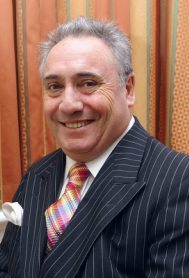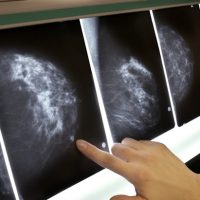
Dr. Richard Rawlins
Dr. Richard Rawlins, an orthopedic surgeon in the UK who is also a magician and member of the Magic Circle, has written an exhaustive review of alternative medicine, Real Secrets of Alternative Medicine: An Exposé.
“A conversation with Mrs. Smith”
A conversation with Mrs. Smith bookends the text. She comes to Dr. Rawlins for hip replacement surgery and asks if there is any alternative medicine she could try first. He tells her some patients say they have benefited, but personal experience is no substitute for critical analysis of evidence. He explains that there is no evidence to support those alternatives but that if she wants to try them, she can go ahead and try. Then she asks which one is most likely to help her. He tells her he can’t recommend one because he has not studied them in any detail. She says perhaps he should study them, and then write a book. So he does.
At the end of the book, he tells Mrs. Smith what he has learned: that complementary and alternative medicine (CAM) “works” but only as a placebo; it does not affect disease outcomes and can sometimes do harm. He quotes cancer researcher David Grimes:
By clinging to delusion, belief in alternative medicine denigrates the very wonder of science and medicine and the massive strides we as a species have made over the last century or so in understanding the world around us, and how our bodies work.
Rawlins ends the book by telling Mrs. Smith “Conventional practitioners care more than you may think. That is the real secret.”
In between those conversations is a 370-page tour de force that covers the entire history of medicine and CAM, stresses the importance of scientific evidence, reviews how good the brain is at deluding itself, explains the placebo effect and the attractions of CAM, and argues that society should not pay for it.
A survey of CAM
He thoroughly covers a long list of CAM methods, from the big names like acupuncture to the more obscure ones like tar water, crystal healing, and Bach’s flower remedies. He even describes railroad therapy, where Indonesians lie on the tracks to feel the electricity as the train approaches and then jump off at the last moment.
He says homeopathy is not only nonsense but is clearly fraud when the label lists an ingredient that is no longer there, that has been diluted out. He lists some homeopathic remedies that were new to me: electrical hum and Tyrannosaurus rex. Sheesh!
Here’s a treatment that I hadn’t heard of: in a book published in 1747, the reverend John Wesley proposed this remedy for the last stage of consumption (tuberculosis): “fuck a healthy woman daily. This cured my father.”
He quotes naturopathic oncologist Daniel Rubin: “One of the greatest challenges we face as naturopaths is the widespread public belief in the scientific method.”
He says we can think of T’ai Chi and other Oriental techniques as “Fi Shi.”
He quotes Mark Crislip’s famous characterization of integrative medicine as mixing cow pie and apple pie. He says integrative medicine “corrupts the attempts of conventional healthcare professionals to advance evidence-based medicine.”
Humor and neologisms
He has a great sense of humor. One of the best parts of his book is the neologisms he has coined. I want to adopt all of them.
Camistry: complementary and alternative medicine.
Camists: those who practice CAM
Camees: their patients
Big Charma: Complementary Health and Alternative Remedy Manufacturers
Placedo: “the way” (from the Japanese word “dò”as in judo) of pleasing patients by understanding how placebos enable patients to respond to their own expectations.
Placebists: those who practice placedo
Wu: faith in nothingness
Wudo: “the way” of imaginary medicine
Procrustination: making the facts fit a pet theory and ignoring facts that don’t fit. In Greek mythology, Procrustes made his captives fit a bed by stretching them or cutting off their legs.
And my favorite: Condimentary medicine: treatments that add spice and flavor but that have no actual effect on the outcome of treatment.
He uses language playfully, describing someone as “not a happy bunny” and pointing out that “No one ducks like a quack.” Chapter 9 is titled “Tripe, Piffle, Poppycock and Balderdash – Codswallop, Twaddle and Tosh. Alternatives to modern evidence-based medicine: Supplements, Complementary, Alternative Medicine and Integrated Medicine.”
Judging CAM
Society has limited resources to allocate. CAM might make patients feel better, but so might football tickets or a bottle of fine wine. Those responsible for public health decisions must decide “whether any care offered on the basis of belief, and with little or no evidence of efficacy, should be funded from the public purse or not.” Rawlins believes patients should have access to CAM but public funds should not pay for it; and patients should be able to give fully informed consent with the understanding that they are getting a placebo.
Over and over, he presents facts and leaves the reader to judge whether camists are perpetrating quackery or fraud. “You decide.” Are they sincere, or have they just realized that “thar’s gold in them thar ills”?
When a patient asks about CAM, just saying “some patients like it” is the first step to quackery.
Modern science-based medicine is the true “alternative,” the alternative to the ancient superstitions and sympathetic magic that were all we had until recently.
He follows SBM
Rawlins is obviously an assiduous reader of the Science-Based Medicine blog. His book mentions us many times, and he includes quotes from me, Steven Novella, David Gorski, Mark Crislip, and Jann Bellamy. He also quotes Edzard Ernst, Simon Singh, David Colquhoun, Orac, and many others whose names will be familiar to our readers.
He refers to me as a jet pilot and surgeon, which is a bit misleading. I have taken the controls of Air Force jets for brief periods under supervision, but I wouldn’t say that makes me a “jet pilot.” And I was a flight surgeon, but flight surgeons are just family doctors for flying personnel and their families. There are a few other minor errors in the book that I hope will be corrected in subsequent editions; for instance, he consistently misspells Bayes and Bayesian statistics as “Bayse” and “Baysean.”
He advocates for a new concept of Person Centered Medicine (PCM) that aims to provide science-based medical care within a humanistic framework. He admits that it may be difficult to implement and that it has not been tested to see if it actually has the benefits anticipated.
Conclusion: A valuable book
This is a wise book by a clear thinker. It tells readers more than they probably wanted to know about alternative medicine and puts it all into perspective. Some readers might lose patience with the long sections on the history of medicine, but they explain ideas that are important to understand. Rawlins advocates a “kinder, gentler” evidence-based medicine that appreciates human values and condones the use of placebo medicine but only with scrupulous honesty and fully informed consent. There is a wealth of good information here, fully supported by endnotes. Unfortunately, it lacks an index, which is a real handicap for using it as a reference. Well worth reading: you will learn something, you will be entertained, and it will help you think more clearly about alternative medicines.

